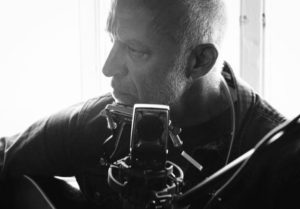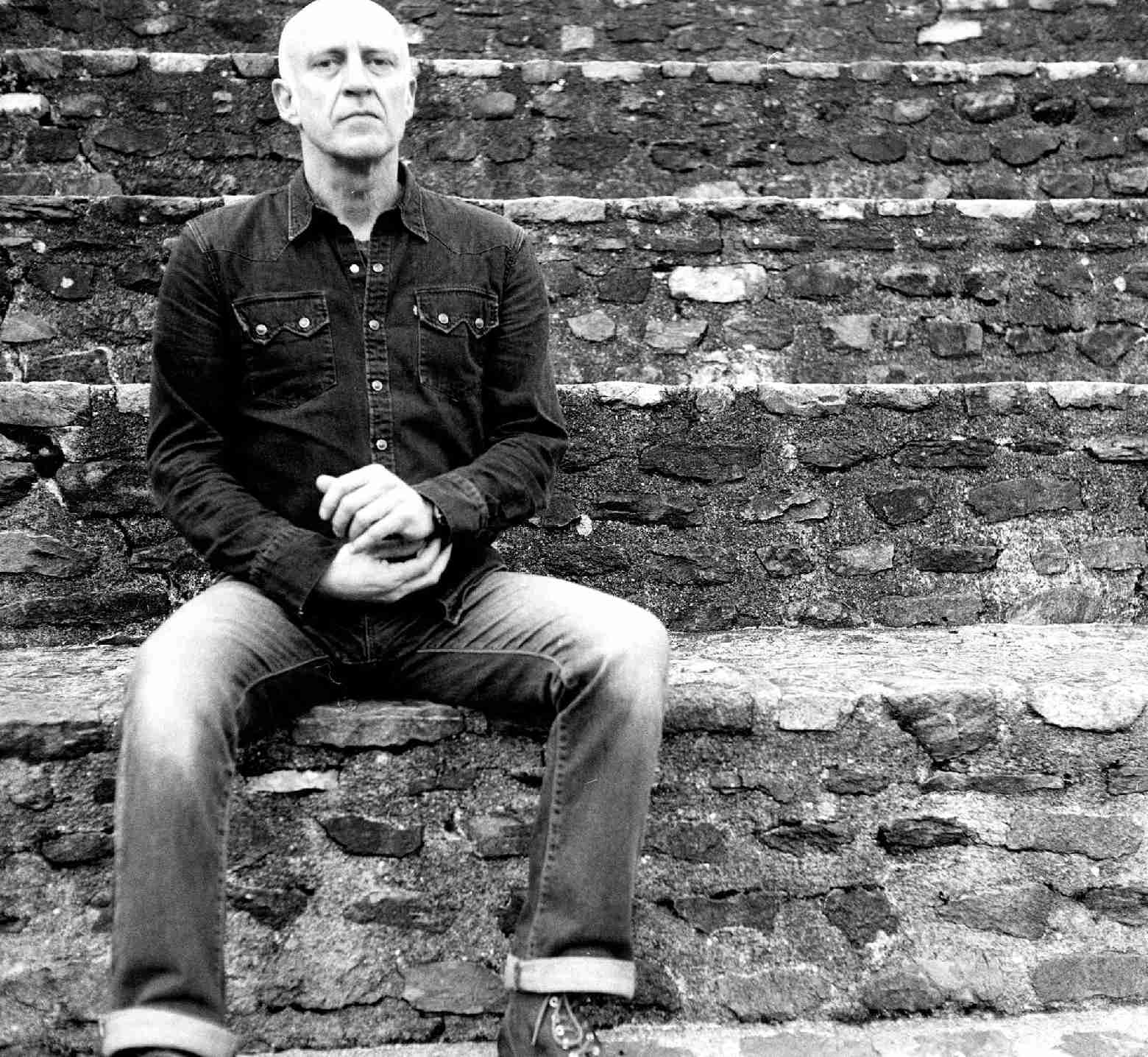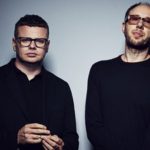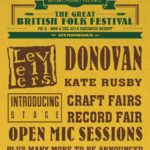Simon Widdowson has been something of a musical troubadour over the past thirty years, leaving his native Leeds as a young man and settling briefly in Minneapolis, thereafter taking up residence in Portland, Oregon, then Dublin, and presently, France. A member of bands Killing Floor and The Rainjackets, Widdowson has shared the stage with many folk, pop and rock icons including John Martyn, Tom Paxton and Deacon Blue, and recorded works by The Decemberists, Pete Krebs and Papillon amongst others. His 2016 album, the excellent Retractable Roots, sounds as though it has been painstakingly and lovingly arranged down to the minutest of details, yet is, allegedly, mostly improvised. The broodingly atmospheric opener evokes comparison with the likes of I Am Kloot, perhaps even The Durutti Column, and the remaining journey – often instrumental – is one of the most cinematic experiences your ears will hear in a very long time. This is one truly gorgeous album. Luckily, Mr Widdowson himself was at hand to give us the lowdown on his multi-faceted existence and not inconsiderable genius behind both guitar and production booth…
How has “living halfway up a mountain in the middle of nowhere in France” affected your songwriting and recording process?
Where I’ve been living with my studio for the last couple of years is very beautiful and quite isolated so there are no distractions and very few outside influences except the weather. There’s an almost constant silence so it’s a very reflective place, especially during the winter months which is when I recorded the album.
There wasn’t really any “songwriting” in the traditional sense for this album but I can say that it was very much influenced by where it was recorded. Living and working in the same place for several months allowed for a pretty intense level of concentration and attention to detail. The natural acoustics are also amazing and I was able to create a sort of sonic environment that I lived and breathed for several months.
What was your primary vision when you were recording Retractable Roots?
I started recording the album without really knowing what I was going to do except make some new music. I just plugged in microphones and started playing instruments, either drums or bass or guitar or keyboards, whatever I was in the mood to play that day. When I liked something I kept it and then added other instruments, sometimes going back and erasing a previous idea and so I was constantly constructing and deconstructing and gradually shapes and forms would begin to appear.
It’s like I was jamming with a band except it was me playing all the instruments. I was also the sound engineer and I’m fairly obsessed with sound. I’ve spent a lot of years recording and producing albums for other artists and I usually end up contributing to the arrangements and I enjoy that a lot, so for this album I wanted that same level of freedom as a musician and to not feel obliged to work within the framework of a performing singer/songwriter as on my previous albums. Those have all been soundtracks to the period in which they were recorded but I think this album is the soundtrack to the last 30 years. It was also created specifically around the format of vinyl.
You’ve been something of a musical vagabond throughout your thirty odd years in the profession…
I left Leeds at age 21 and went to America because I was fascinated with its musical culture. I started out as a guitarist, heavily influenced by the great bluesmen so I went in search of that. I then discovered the proverbial “road” and how driving long distances across the vast open spaces changed the way I felt and I was hooked. I spent several years touring the US playing almost every day in a different town, always meeting new people and after that it’s been hard to stay in one place for too long, although I’m working on it!
I think there’s also an aspect of my character that is often quite restless and finds it hard to stay satisfied for long. I like new experiences and new discoveries and I’m grateful that playing music has allowed me to do that. I also really like the quote by Oscar Wilde who said that “life is a daring adventure or nothing at all”
I’ve been reading your ‘memoirs’, and it struck me just how close your writing style is to that of Bruce Springsteen…
I have always admired Bruce Springsteen and I think some of his songwriting is up there with the very best. There is a strong element of the “Road” in his work and I can definitely relate to that. When he’s talking about, “life is rubbish, let’s get out of here”, I definitely felt the same way growing up on the outskirts of Leeds in the 70’s and 80’s. So I’ve definitely done a lot of running but I wasn’t born in the USA!
I’ve found myself in a fair number of difficult situations, mostly from taking risks and especially after packing up everything in my car and moving to another city in America, or leaving America and moving to Ireland or when I came to live in France, but the adrenaline from realising that I’m in a new place, I don’t know anyone and I’m running out of cash and better figure out something quickly has always been kind of exciting.
I think the hardest time for me was after I moved to Portland Oregon in the late 90s and built a recording studio and artists’ workspace called Are You Listening? that was pretty much my bohemian rock and roll dream. I had just recorded the first Decemberists album and a host of other groups and everything was going great. It was a fantastic place and totally inspiring but since Portland was rapidly becoming “the place to be”, after a few years, my landlord, seeing the potential of what had previously been an abandoned warehouse, summoned me into his office one day and explained that he wanted me out of his building immediately and even though I had done nothing wrong, he explained that he had a team of lawyers who would keep me in court for the rest of my life until I agreed to move out. I had no choice and ended up with about a week to vacate the building and everything ended up in the bin. It broke my heart and shortly after that I left America after spending 18 years there.

…and your happiest times?
There’s been a lot of really happy times in my life, especially the last couple of years in the mountains in France and some incredible adventures, almost always flying by the seat of my pants. I loved the period when I lived in between the mountains and the desert in Santa Fe New Mexico and spent several years driving my trusty old Volvo estate car across America playing solo acoustic gigs almost every night. It was total freedom. I could go anywhere I wanted, play a gig, get paid and then drive hundreds of miles to the next town and do it again. I was always surrounded by magnificent scenery and always met wonderful people. It was my dream come true.
My aforementioned studio in Portland Oregon was also one of the happiest times in my life and definitely a highlight of my career. This period was much less about me as the recording artist as I was recording and producing albums for other artists and providing an inspiring place for others to make music and create art, doing what I love to do in the service of others and I love that. I’ve never been that comfortable with the spotlight being on me.
I was more than a little taken aback to learn that the album was, by and large, improvised…
The album was largely improvised in the sense there were no preconceived musical ideas before I started playing each track and hit the “record“ button. I didn’t know what was going to happen when I started playing each instrument so I improvised. I then added other elements, again improvising. I then erased the parts I didn’t like and kept the parts that I liked. I didn’t try to refine my ideas too much and I wanted it to sound as alive as possible. The tracks came to life as one idea influenced the next. Nothing was planned in advance, kind of like my life I suppose.
From working as a producer for a lot of other artists I’m always trying to capture those moments of “magic” and they are often when the band are trying something new and say to me “don’t bother recording we’re just going to try a new idea”. Well those are the moments that I always record and often end up being the best moments on an album. I don’t believe in searching for perfection. That’s not the point for me. It’s about capturing emotions and I wanted this album to have as much of that as possible. Some of the album is purely instrumental because I just didn’t hear the need for my voice. Most of the lyrics on the album, “Minnesota” for example, came to me spontaneously at exactly the same moment I sang and recorded them.
What are your immediate and long term plans for your career now?
For the the future I would like to spend much more time in England. I haven’t lived there for 30 years and I miss the people and of course the music. I like where I live in France especially the landscape and relaxed way of life but I do miss the dynamism and importance of music in the culture. I also miss a good conversation over a pint in the local pub.
I like playing solo acoustic gigs using songs from my previous albums, but I would also like to play with some other musicians in the UK, either in the service of their projects or performing music in the spirit of this new album, which I definitely can’t do by myself. I see this new album as a sort of “model” for what a group could do on stage. I don’t feel that live shows need to be a note for note reproduction of an album but instead can be an opportunity to take various themes and ideas and push the envelope a little further and find new territory.
I love recording and producing albums for other people and want to continue doing more of that too, especially with UK artists. I love the recording studio environment and helping artists realise their vision and contributing ideas and collaborating.
Photo credits: Main Pic: Isabelle Jaquemond, second pic: Jordan Scott Kennedy.




